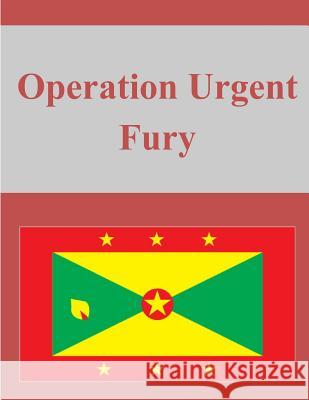Operation Urgent Fury » książka
Operation Urgent Fury
ISBN-13: 9781503280779 / Angielski / Miękka / 2014 / 90 str.
Early in the morning of 25 October 1983, Operation URGENT FURY began with assaults on airstrips at Point Salines and Pearls on the tiny island nation of Grenada. Over the next nine days US troops would rescue American citizens, restore a popular native government, and eliminate a perceived threat to the stability of the Caribbean and American strategic interests there. Memories of the Iranian hostage crisis and the aborted rescue attempt at Desert One were fresh. Anxious to avoid a similar experience, policymakers mounted URGENT FURY in haste in response to a threat to American medical students on Grenada. The operation succeeded, but flaws in its execution revealed weaknesses in joint operations. Together with the bombing of the Marine Corps barracks in Beirut that same month, the experience of Operation URGENT FURY added impetus to efforts to reform the joint system which were already under way. Since 1979, when Maurice Bishop took power in Grenada, concern in the US State Department had grown as the country moved closer to Cuba and the Soviet Union. In late 1983 events in Grenada led to President Reagan's decision to conduct a military operation there. Cuba had built a runway on Grenada suitable for aircraft capable of interdicting US air and sea routes to Europe and the Middle East. Bishop's overthrow in October by militantly anti-US Marxists appeared to pose an immediate threat to the nearly six hundred American students and four hundred other foreigners living in Grenada. State Department evacuation planning rapidly shifted to Department of Defense (DOD) planning for a much larger military operation. Uncertain of the strength of the Grenadian troops and armed Cuban workers, US Atlantic Command (USLANTCOM) planners developed a wide range of courses of action and recommended a large joint task force (JTF) to overwhelm the opposition. In a 20 October meeting, Secretary of State George P. Shultz and the Chairman of the Joint Chiefs of Staff, General John W. Vessey, Jr., USA, warned the Special Situation Group (SSG) comprised of Vice President George Bush and other top national security advisors that the Grenadian junta might resist an evacuation and that armed Cuban construction workers might intervene. The SSG approved a recommendation by the Chairman that the mission be expanded to include neutralization of Grenadian forces and the armed Cuban workers and reconstruction of the Grenadian government.
Zawartość książki może nie spełniać oczekiwań – reklamacje nie obejmują treści, która mogła nie być redakcyjnie ani merytorycznie opracowana.











